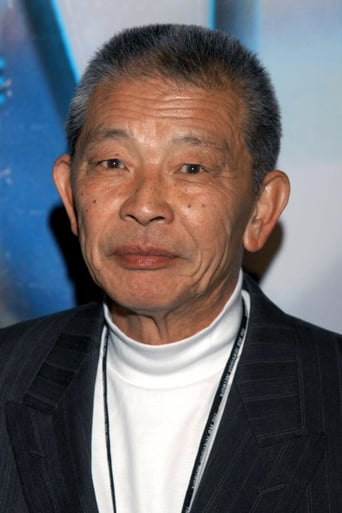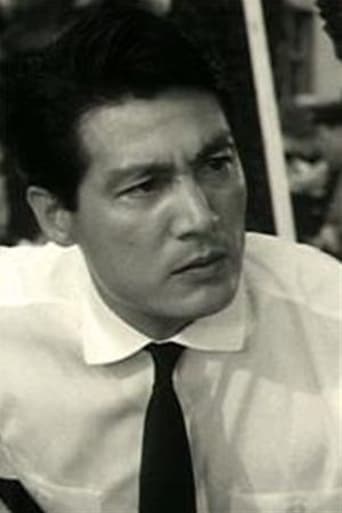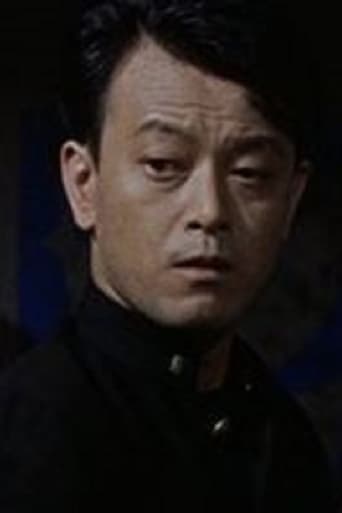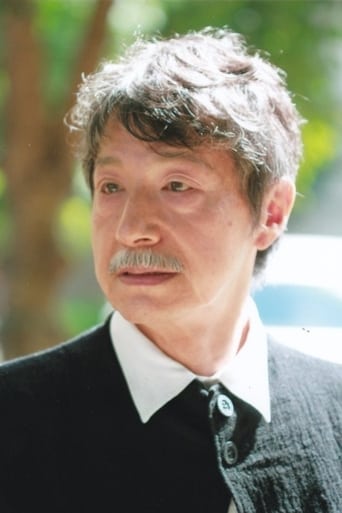GamerTab
That was an excellent one.
Titreenp
SERIOUSLY. This is what the crap Hollywood still puts out?
Lumsdal
Good , But It Is Overrated By Some
Humbersi
The first must-see film of the year.
billcr12
16 February 2017 The basis for this film is a best selling novel written by a Japanese Catholic writer in the 1960's. Two Jesuit priests from Portugal are sent to Japan for two reasons. Fathers Rodrigues and Garrpe are looking for Father Ferreira, who has disappeared with the rumor of having renounced his faith. Along the way, the good reverends discover groups of Catholics in hiding. The punishment for practicing the tenets of the church of Rome are quite brutal, including a crucifixion from low tide to high tide with the unfortunate parishioner's death by drowning. Rodrigues and Garrpe will be severely tested by government officials who claim to be defending their one true religion, Buddhism. This all leads to some deep theological and philosophical discussions and some horrendous and inventive acts of not so gentle persuasion. The two hours plus here will not restore your faith in humanity or religion. Martin Scorcese released a newer, more technically adept version in 2016. This 1971 original tells the same story with some slight variations. Both films are filled with the director's good intentions and each has succeeded in producing works of art that will at least cause the viewers to think about the meaning of life.
Desertman84
I just saw the Martin Scorsese's 2016 movie entitled "Silence" starring Andrew Garfield,Adam Driver and Liam Neeson two days after this review is being written.I did not realize that there was an original Japanese film entitled "Chinmoku",also known as "Silence" that was released back in 1971. I was fortunate to see it on a website that has Asian movies.Luckily was able to see it a couple of times to make a review and compare it with the Hollywood version."Chimoku"(a.k.a Silence) is a Japanese film that was one based on the 1966 novel written by Shūsaku Endō with the same title.It stars David Lampson,Don Kenny,Tetsurō Tamba and Shima Iwashita.Few scenes have dialogues that were English. It tells the story of two 17th century Portuguese priests,Fathers Sebastian Rodrigo and Francisco Garrpe,who went to Japan to search for their mentor Fr.Cristóvão Ferreira,who has never contacted them for the last five years.Added to that,they also intend to evangelize and spread Christianity particularly Roman Catholicism.It was set on the middle of the 1600's when Christianity was expressly banned in Japan.Christian persecution and the killing of Christians were well-known to be occurring. In spite of it,both Portuguese priests are determined to accomplish their mission despite the fact as well that it was believed that Fr. Ferreira has become a pagan.Before going any further,I would like to say that Scorsese made a remake of this film just like when he did "The Departed" which was basically a remake of the Chinese film,"The Infernal Affairs" instead of saying that he made a film based on novel by Endō. Evidently,this was a little known film. Added to that,there was very little difference made as far as majority of the scenes and the dialogues are concerned.Only a few changes in the conclusion particularly the final scene was made and possibly the running time considering that Scorsese's film is 30 minutes longer.Director Masahiro Shinoda did a wonderful job in exploring various themes in this little known film that includes the possibility of Christianity in Japan which up to now remains a religion of the minority;cultural difference between Asians and Europeans;faith in the face of oppression as well as the conflict between human needs as well as emotional needs against divine nature;human weaknesses and suffering; psychological make-up and emotional content.We get to see the cultural difference between the Europeans and the Japanese and was taken into consideration especially when the Portuguese priests arrived into a village where there are many Japanese Christians.This was also taken into consideration in the complex character Kichijiro,who continues to do what the Japanese soldiers would want him to do particularly in degrading Christian statues and carvings as well as trying to pinpoint at Christians whether they are priests or Japanese villagers but deep inside has probably maintained a Christian.Added to that,we also realize the Japanese intense love for their culture,pride and nationalism which remains true today.This was evident among Japanese villagers who became martyrs and gave up their life instead of abandoning their Christian faith as well as the Japanese persecutors who would not want their culture to get influenced from the outside particularly the West.There were also a lot of interesting scenes between Fr.Ferreira and Fr. Rodrigo with the former confirming that he has apparently apostatized from his Catholic faith and the latter going through intense suffering after undergoing torture from the Japanese soldiers to convince him into renouncing his faith. The needs of divine nature and human nature was clearly explored including the nature of God particularly His silence and make His presence felt. Finally,it was also worthy to note the changes that both priest have undergone with Fr.Ferreira embracing Japanese culture and Fr. Rodrigo's dark psychological make-up when he finally decided to apostatize when he possibly knew that what he did was not just a formality to save his life but a conversion was indeed going to take place whether he likes it or not.It was clearly seen that there is lack of content and happiness on their part. Overall,this was a great film.I even it consider a lot better than the Scorsese's 2016 version.All themes were clearly explored unlike the 2016 version wherein there were some themes that weren't explored very well.Screenwriters - author Shūsaku Endō and director Masahiro Shinoda - did a wonderful job of writing the screenplay.Definitely, the viewers will be divided upon seeing this film particularly Christians. But I sincerely believe that the themes were presented fairly whether one dies rather than abandoning one's faith or one apostatizes in order to save one's life.The pros and cons were clearly explored.
chaos-rampant
It is most telling that a director and notorious film buff of Martin Scorsese's reputation decided out of all the movies out there to remake this little known novel adaptation from 1971. Anyone who has seen his documentaries A Journey through American Movies and My Voyage to Italy knows full well that Scorsese knows his cinema. Itt must have been then for very good reason that he picked Silence and it only takes 30 minutes to realize why.The story deals with two Jesuit missionaries that land in the southern shores of Japan and become the priests of a small fisherman village. The problem being that at this point Christianity had been outright banned from Japanese authorities, but not before counting a rough 300,000 people among the converted.The truth is that by the end of the 16th century what had started as a promising beginning to those proselytizing missions (daimyos allowing catholic missions to be established in hopes of creating a trading relationship with Europe), met complications from competition between the missionary groups, political difficulty between Spain and Portugal, and factions within the government of Japan. Christianity was suppressed. By 1630, it was driven underground.The two Portuguese priests are forced to flee the small village and are later arrested and tortured, both physically and mentally, to denounce their faith. The beauty of the movie however is that it does not stoop to convenient black and white morality nor does it make the persecuters ruthless villains and the priests martyrs without flaws.By the end of the sequence where Father Rodriguez travels through the rugged land and is finally betrayed by a villager - a complete Jesus/Judas parable in itself -, the movie has already transcended the strict limitations of a period drama or a religious movie. It is a slow and brooding drama make no mistake, but it's just that kind of movie. The slow-burn pace is part of its infrastructure as much as the tormented Father Rodriguez as the central, Jesus-like figure.Masahiro Shinoda's direction is what in my opinion truly elevates Silence to another level. Gone are the frantic tracking shots of his earlier Samurai Spy. Here he favours stationary blocking and long takes. Both his shot selection and framing however are pitch perfect - truly a lesson in directing delivered in a little more than two hours. Notice for example how he frames the villager that betrays Father Rodriguez to the authorities in the second scene where he talks with the geisha: he's framed with the open screen door in the background and behind the door there's a wall made of boulder rocks and rain is falling, as if to symbolize both the burden of his guilt and his sadness of being "a weak man". Many such examples can be found throughout the movie for the discerning eye and it just goes to show to what pain-staking lengths Shinoda went to physically express his characters' emotions.Long stretches of the movie are very monotonous in colour - some night/dusk shots almost appear to be black and white. Perhaps colour is suppressed as much as the religious beliefs of the converted Japanese villagers who are forced (and tortured) to denounce their faith. In that light it makes sense when Father Rodriguez dons a bright red robe which he wears for most of the movie. His presence bringing the cleansing fire of change, the eye almost compelled to fixate on him.Technical brilliance aside, Silence works as a human drama exactly because it refuses to take sides. The discussions between Father Rodriguez and the local feudal lord Inoue and between Rodriguez and his old Portuguese teacher who renounced Christianity and now considers himself Japanese Father Ferreira (oddly played by the great Japanese character actor Tetsuro Tamba) reveal the heart and brain of the movie. Christianity is not suppressed as Inoue states out of some childish wim or stubborness (which is what Father Rodriguez's faith resembles) but because the situation demands it: we're talking about Japan in the grip of social and political change that ended with the formation of the Tokugawa Shogunate after the civil war between the Tokugawas and the Toyotomis. A largely feudal country in desperate need of a nationalistic conscience and central government.The points made by Father Ferreira are also important. When the Japanese villagers embrace the Christian God or the Virgin Mary it's because they see in them the same pagan gods and symbols they've worshipped for centuries (a convenience Christian missionaries were only too happy to exploit). If they call Amaterasu Virgin Mary or Buddha Christ, it is because they have come to resent the oppressive social caste system those traditional symbols have come to be associated with. They're in desperate need of change - any change.I won't spoil the result of the crisis of faith Father Rodriguez faces but I will say the ending is chilling in its own right. The Scorsese remake is scheduled for 2010 and I'll be only too happy to see the original gain a well-deserved exposure and second life. A must-see classic of Japanese period cinema.
redmonopole-001
This is probably the most powerful movie I have ever seen. Two Portuguese missionaries come Japan just as the authorities are stamping out Christianity in the 1500's. They seek to minister to the local Christians who are sorely persecuted.The movie asks whether Christianity can really ever grow or thrive in Japan.Besides just the persecution, is the Christianity in Japan the same as in Europe, or has it become its own religion? It is also an examination of the struggles in one man's faith undergoing inquisition-like sufferings. I have read the book and seen the play, but I would say that the movie had the most emotional impact.





